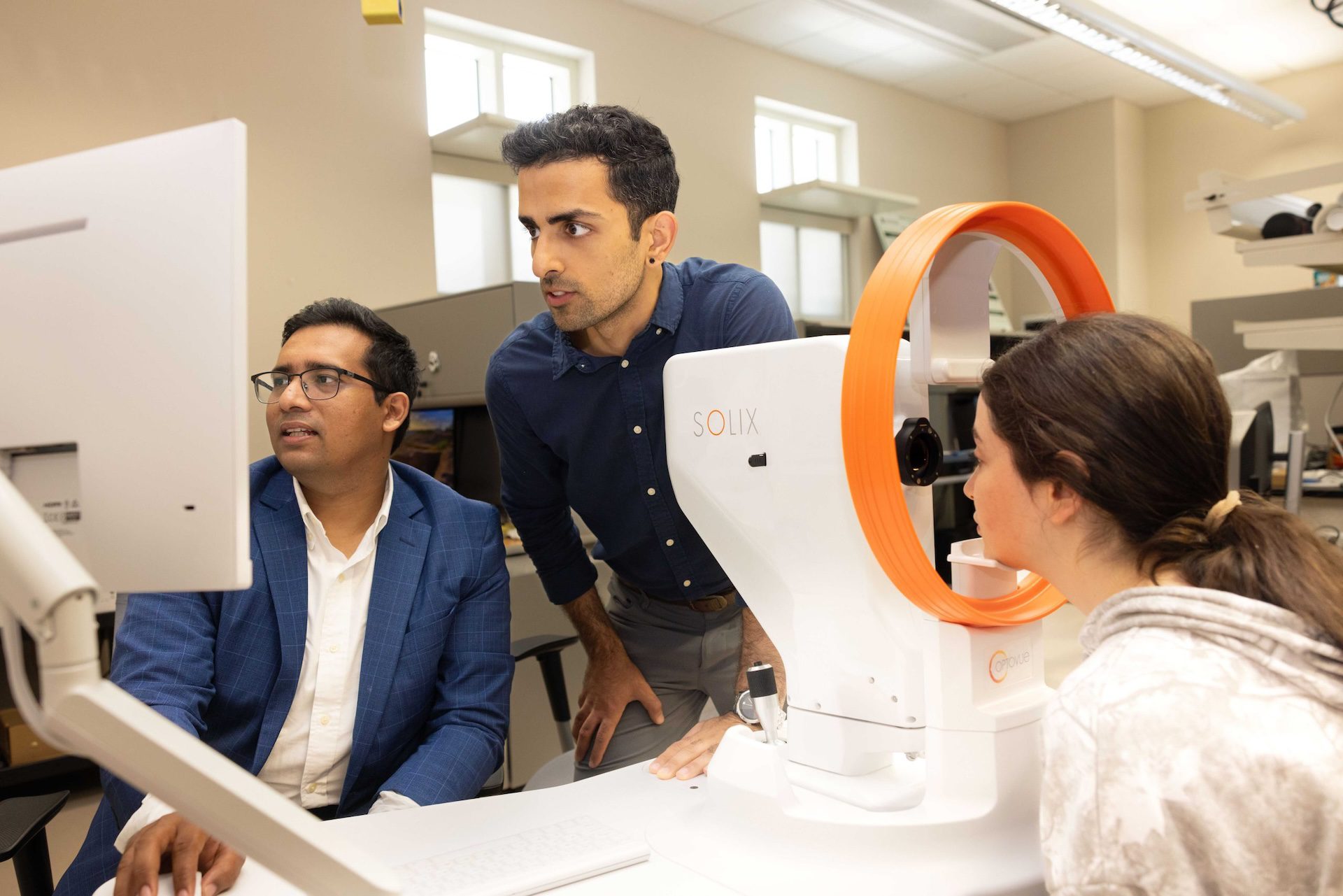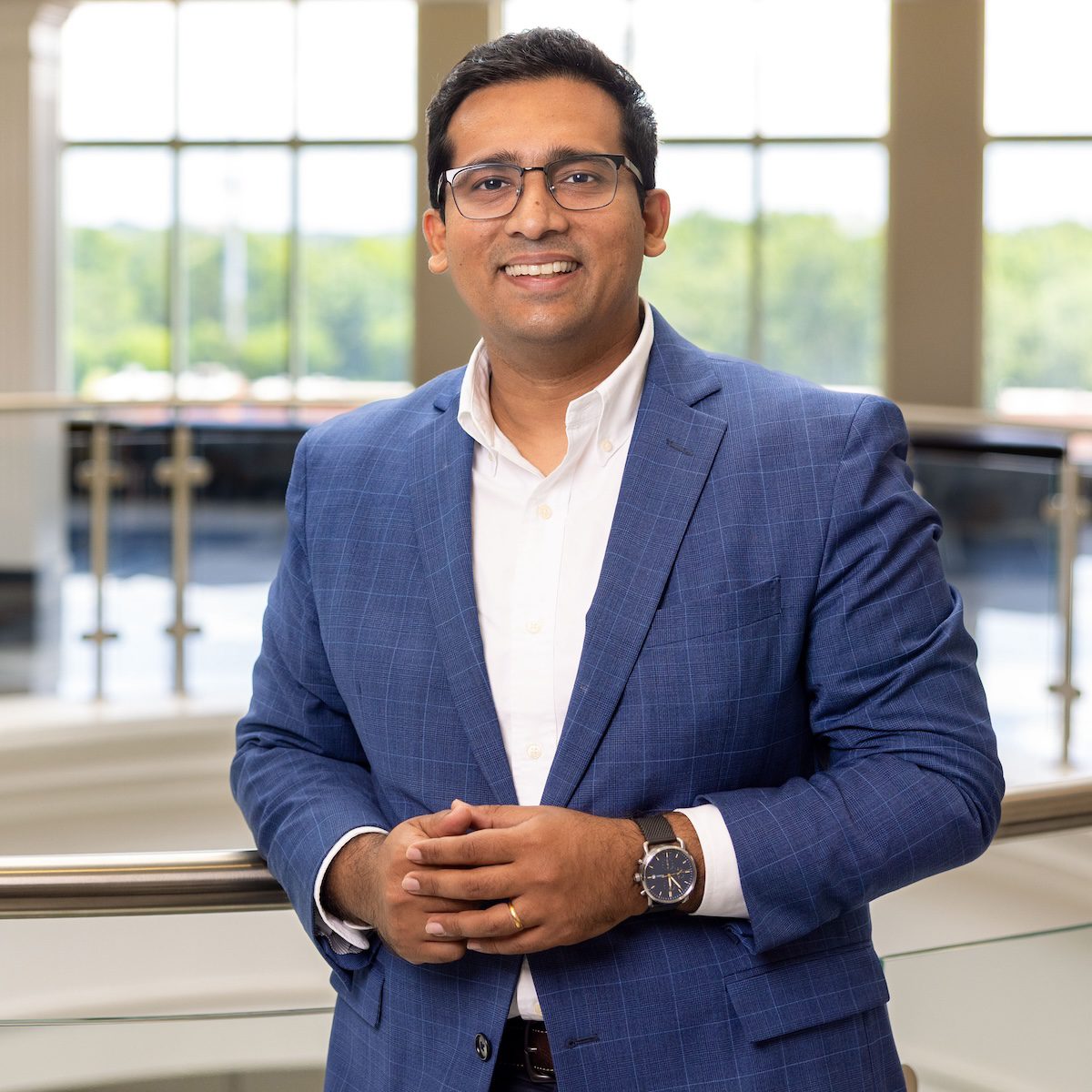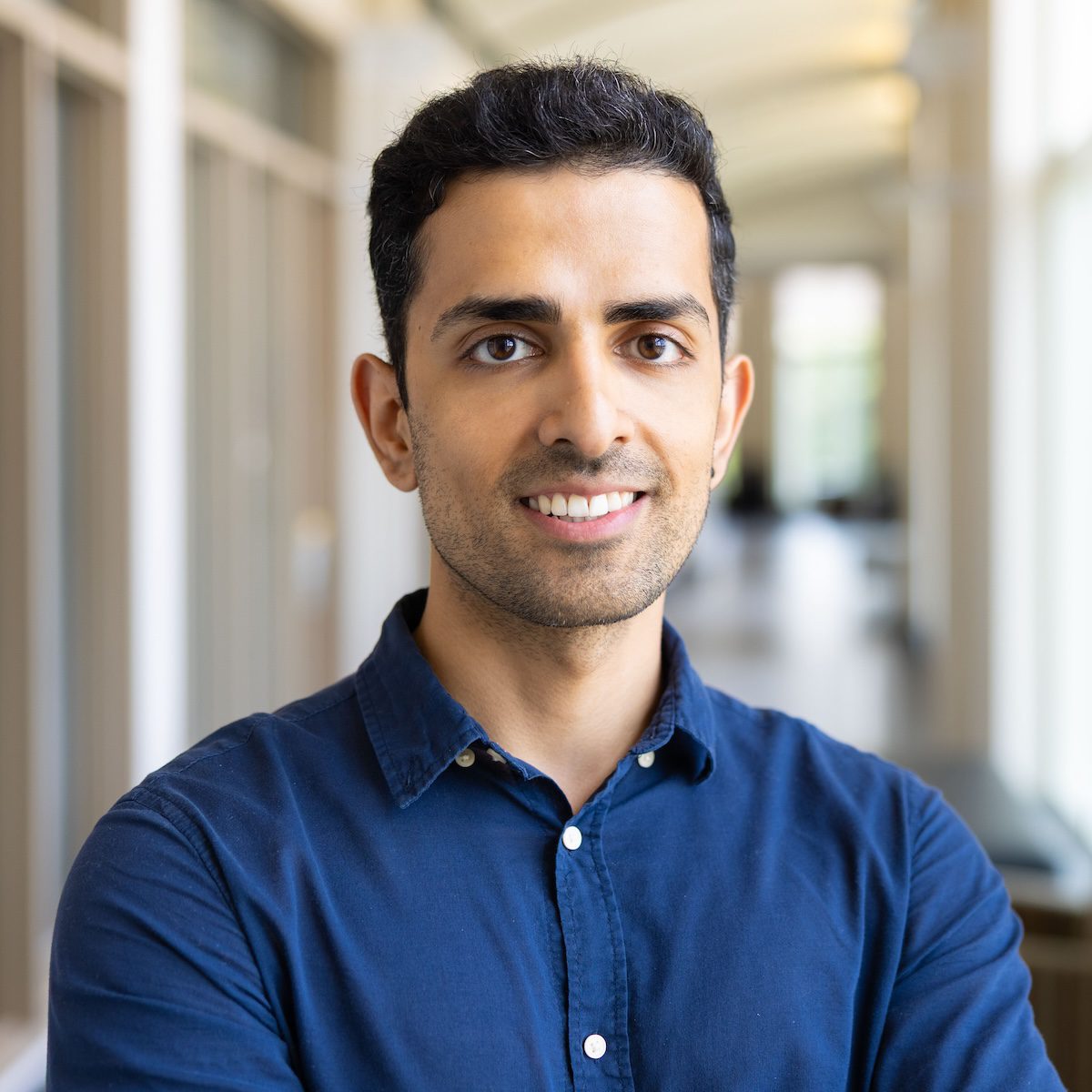Eye Tech

To diagnose retinal diseases in progress, a physician reviews hundreds of images of a patient’s retina taken by an optical coherence tomography scanner during a routine eye exam. Up to 10% of a physician’s day is spent reviewing such images for their patients.
Imagine that an AI assistant can help review the scans to identify even the slightest changes in retinal patho-physiology in mere seconds, alerting the doctor — years before the patient’s vision begins to deteriorate — to the onset of macular degeneration or another anomaly. And that the use of this technology paves the way for the start of targeted, disease-mitigating care.

That’s the goal for UNC Charlotte researcher Minhaj Nur Alam, assistant professor of electrical and computer engineering and director of the Quantitative Imaging and AI Laboratory in the William States Lee College of Engineering. His research in this area builds upon foundational doctoral studies at the University of Illinois at Chicago, followed by a postdoctoral fellowship at Stanford University’s School of Medicine.
“Early in my Ph.D. studies, I began studying biomarkers and developing engineered imaging biomarkers for our AI models to use to identify distinguishable patterns in scanned retinal images of patients with a particular eye disease versus those of non-diseased patients,” Alam explained.

Several undergraduate and graduate students are engaged in research alongside Alam, including doctoral student Sina Gholami. His path began in Shiraz, Iran, continued through the University of Pisa, and ultimately brought him to Alam’s lab in Charlotte. Motivated from a young age by a drive for challenge and creativity, Gholami developed an early passion for engineering. After discovering Alam’s work through a LinkedIn post, he joined the team with a clear goal: translate AI theory into real-world ophthalmic solutions.
Among the team’s priorities as they build and train robust and predictive machine-learning models is maintaining patient privacy. Top of mind are situations where individual eye doctors could have patient data that emphasize certain populations or demographics, or an AI model that produces reliable results locally but may not be globally representative due to a lack of shared data.
With funding from the National Institutes of Health, Alam and his team are investigating federated learning, which enables collaborative AI model training where data can be stored locally on hospital or clinic databases without violating patient privacy.